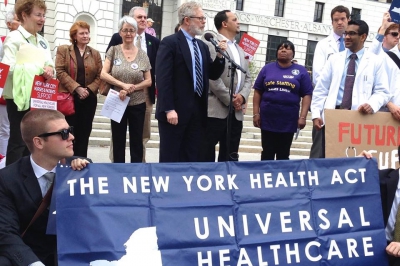 On this paper, we discover the function patient incentives play in slowing healthcare spending development. Proof means that while patients do indeed respond to monetary incentives, value-sharing doesn’t uniformly improve worth; fairly, cost-sharing provisions should be deliberately structured and targeted to cut back care of low marginal value. Different mechanisms may be useful in concentrating on specific populations or forms of utilization. The spillover results between privately insured and publicly insured populations as well as market imperfections suggest a potential role for public coverage in promoting insurance design that slows spending development whereas growing the health that every greenback buys.
On this paper, we discover the function patient incentives play in slowing healthcare spending development. Proof means that while patients do indeed respond to monetary incentives, value-sharing doesn’t uniformly improve worth; fairly, cost-sharing provisions should be deliberately structured and targeted to cut back care of low marginal value. Different mechanisms may be useful in concentrating on specific populations or forms of utilization. The spillover results between privately insured and publicly insured populations as well as market imperfections suggest a potential role for public coverage in promoting insurance design that slows spending development whereas growing the health that every greenback buys.
In 2007, well being companies within the Fortune 1,000 earned $71 billion. Of the 52 industries represented on Fortune’s listing, prescription drugs and medical equipment ranked third and fourth, respectively, in terms of income as a share of revenue. From 2000 to 2007, the annual profits of America’s prime 15 health-insurance coverage corporations increased from $3.5 billion to $15 billion.
Docs need to talk out towards these unconscionable lies. We all know the importance of end-of-life counseling. Many, many individuals have spoken to their medical doctors about finish of life issues as well – and they should be talking out as well. It’s time that we stopped these awful lies. A very good and considerate hub. I feel most non-People are startled at the opposition to common health care within the USA. It appears obvious to the rest of us!
It is important to notice that it’s believed that quite a lot of the fear people have concerning a single payer system is because of propaganda put forth each discreetly and overtly by healthcare insurance lobbying corporations whose employers would really like issues to remain the way they’re. Currently congress is engaged on hammering out a compromise, however this effort is hampered by a nonetheless misinformed public, politics as usual, and the fact that no less than a few of the members of congress may be in the pockets of the healthcare insurance coverage industry.
Moral hazard has fostered an unintended collusion between suppliers benefiting from larger costs and sufferers who do not absolutely bear them. In this environment, making an attempt to regulate prices is awfully tough. When Medicare minimize reimbursement rates in 2005 on chemotherapy and anemia drugs, for example, it saved nearly 20 p.c of the previously billed costs. However Medicare’s complete cancer-therapy prices really rose virtually instantly. As The New York Instances reported, some physicians believed their colleagues simply performed more remedies, particularly increased-revenue ones.
